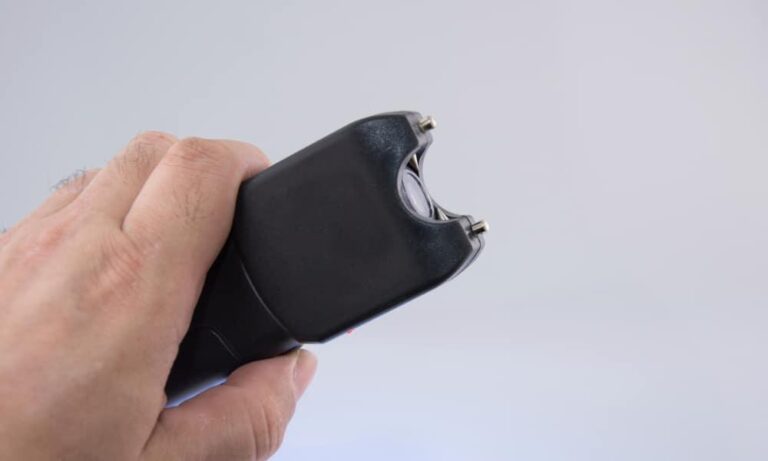Table of Contents
- Legal Framework Governing Stun Guns and Their Classification in Canada
- Key Provincial Variations and Local Enforcement Practices
- Potential Legal Consequences of Possessing or Using a Stun Gun Illegally
- Practical Tips for Staying Compliant While Considering Personal Safety Options
- Wrapping Up
Legal Framework Governing Stun Guns and Their Classification in Canada
In Canada, the possession, sale, and use of stun guns are governed primarily under the Criminal Code and the Firearms Act. These laws classify stun guns as prohibited weapons, meaning the general public is not permitted to own or carry them without specific authorization. Unlike other self-defense tools, stun guns fall under a stringent regulatory framework designed to limit their availability and reduce potential misuse. The Criminal Code explicitly prohibits the importation, manufacture, sale, and possession of stun guns, with strict penalties for those who contravene these rules.
The classification of stun guns as prohibited weapons reflects the government’s approach to public safety and crime prevention. It’s important to understand that stun guns are not considered conventional firearms but are grouped with other devices that cause incapacitation through electrical shock. When reviewing legal compliance, remember that:
- Possession without lawful authority or a valid license may lead to criminal charges.
- Use of stun guns in self-defense is not legally justifiable under Canadian law.
- Exceptions exist only for law enforcement and select professionals operating under strict regulations.
Key Provincial Variations and Local Enforcement Practices
Across Canada, stun gun regulations fluctuate significantly depending on the province, driven largely by local law enforcement priorities and public safety concerns. While some provinces impose strict prohibitions on civilian ownership of stun guns, others offer conditional allowances, often requiring permits or licenses. For example, in provinces like British Columbia and Quebec, stun guns are typically classified as prohibited devices, resulting in severe penalties for possession without authorization. Conversely, provinces such as Alberta may exhibit a bit more leniency, but with rigorous enforcement standards that necessitate registering the device or demonstrating a clear need for personal protection.
Enforcement practices add another layer of complexity, as local police services prioritize stun gun violations differently based on community risk factors and crime rates. In urban centers, law enforcement may increase patrols and checkpoints aimed at intercepting unauthorized stun guns due to concerns over violent crime. Meanwhile, rural or less congested regions might channel resources elsewhere, although penalties for illegal possession remain strict. It is crucial for individuals considering stun gun ownership to familiarize themselves not only with provincial legislation but also with the nuances of how local authorities interpret and enforce these rules, since misunderstandings can lead to costly legal consequences.
- British Columbia: Comprehensive prohibition, strict enforcement.
- Alberta: Conditional acceptance, permit requirements.
- Quebec: Classifies stun guns as prohibited weapons.
- Ontario: Regulations vary with emphasis on regional law enforcement policies.
Potential Legal Consequences of Possessing or Using a Stun Gun Illegally
Misusing or unlawfully possessing a stun gun can lead to serious legal repercussions in Canada. Under the Criminal Code, stun guns are considered prohibited devices, and harboring one without proper authorization could result in criminal charges. These charges may include possession of a prohibited weapon or unauthorized use, which can carry penalties such as hefty fines, probation, or even imprisonment. Additionally, a criminal record from such offenses can profoundly affect your future opportunities, including employment prospects, travel, and more.
It’s crucial to recognize that law enforcement agencies actively enforce these restrictions, and even inadvertent possession can attract severe consequences. Be aware that law enforcement officers have the authority to confiscate stun guns immediately upon discovery. Furthermore, legal proceedings may involve weapon seizure, court appearances, and substantial legal fees. To avoid these outcomes, always verify local and federal laws before acquiring or carrying any self-defense device, and consult legal experts if you are unsure about your eligibility or compliance.
Practical Tips for Staying Compliant While Considering Personal Safety Options
When exploring personal safety tools, it’s crucial to stay informed about the legal landscape to avoid unintended infractions. Always verify the current regulations in your province or territory, as Canadian laws on stun guns and other self-defense devices can vary and are subject to change. Consulting official government websites or seeking legal advice can help ensure you don’t purchase or carry restricted items unlawfully. Remember, in Canada, stun guns are generally prohibited weapons, so consider alternatives such as personal alarms or pepper spray (where permitted) that meet legal standards.
Incorporating personal safety habits goes beyond just owning a product. Enhance your security by adopting preventative measures like staying in well-lit areas, informing someone you trust about your whereabouts, and attending self-defense classes. Document your purchases and keep receipts for any safety device you’re legally allowed to carry. This documentation can prove your compliance if questioned by law enforcement. By combining legal awareness with proactive strategies, you’ll be better equipped to protect yourself responsibly and confidently.
Wrapping Up
In conclusion, navigating the regulations surrounding stun guns in Canada is essential for anyone considering their use or possession. Understanding the legal landscape helps ensure you stay compliant and avoid serious consequences. By staying informed about federal and provincial restrictions, you can make responsible decisions that prioritize safety and legality. Keep in mind that laws can evolve, so regularly checking for updates is a smart practice. Stay safe and informed!Check Our Other Blogs
- StunGun – Your Trusted Source for Stun Guns, Laws, and Self-Defense Tips
- PepperSprayLaws – Your Trusted Resource for Pepper Spray Information
- StunGunLaws – Your Trusted Guide to Stun Gun Legality and Safety



